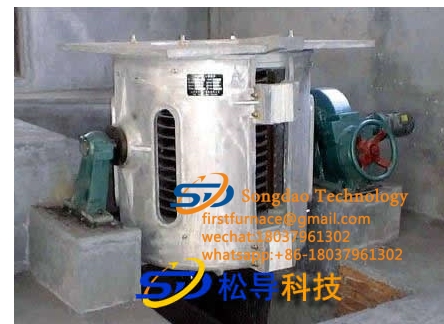- 16
- May
How to increase the melting speed of an induction melting furnace?
How to increase the melting speed of an 誘導溶解炉?
1. It is common that the melting time of the melting furnace is too long. In principle, the induction melting furnace has a short melting time, less burning loss of alloy elements, and low energy consumption. Reducing energy consumption is also an important means for enterprises to reduce costs and increase benefits. Therefore, many smelting furnace users first proposed to speed up the smelting speed. To increase the smelting speed, it is fundamentally necessary to increase the smelting power, that is, increase the transformer, increase the power of the intermediate frequency power supply, increase the configuration capacitor, and change the corresponding load induction coil. This change is tantamount to making a new set. melting furnace.
2. Changing the turns ratio of the induction melting furnace coil or changing the ratio of the coil diameter to the height has become a method to increase the melting speed. Think of the induction coil as a big solenoid. Increasing the diameter of the turns of the coil can increase the magnetic field strength in the coil; in addition, increase the height-diameter ratio of the induction coil, increase the number of turns, and reduce the turn spacing. ~1.6): 1. At the same time, the cross-sectional area of the induction coil is increased, and the magnetic field strength in the induction coil can also be increased, thereby improving the melting rate of the melting furnace to a certain extent.
3. The closer the midpoint of the frequency matching between the induction coil of the induction melting furnace and the intermediate frequency power supply is to the resonance point, the higher the frequency. The intermediate frequency output current I=U/Z is smaller, and the output power P=U×I is also reduced, which should be avoided. Due to the selection of the induction coil of the melting furnace, that is, the inductance of the furnace coil and the capacitance of the resonance capacitor. In actual production, the inductance in the induction coil varies greatly; on the one hand, it is related to the diameter, height, and number of turns; on the other hand, it is also related to the shape, size, and magnetic permeability of the smelting furnace charge. In the design, the magnetic permeability of the charge is 1, because the magnetic permeability tends to be close to 1 after the maximum temperature reaches the Curie point (950 ° C). The result of this approximation calculation has little error with the actual operation.

